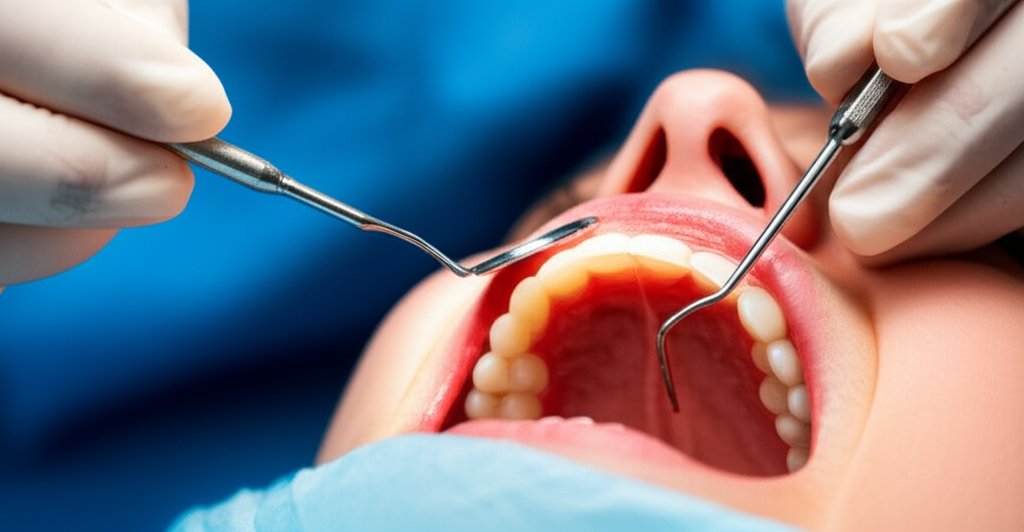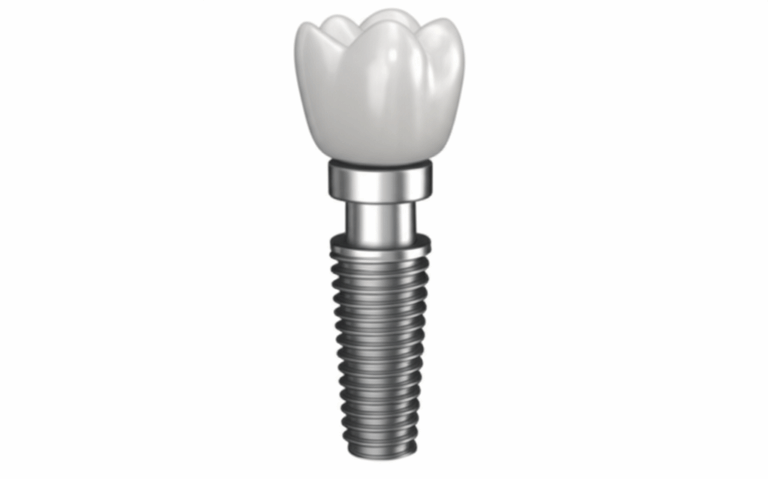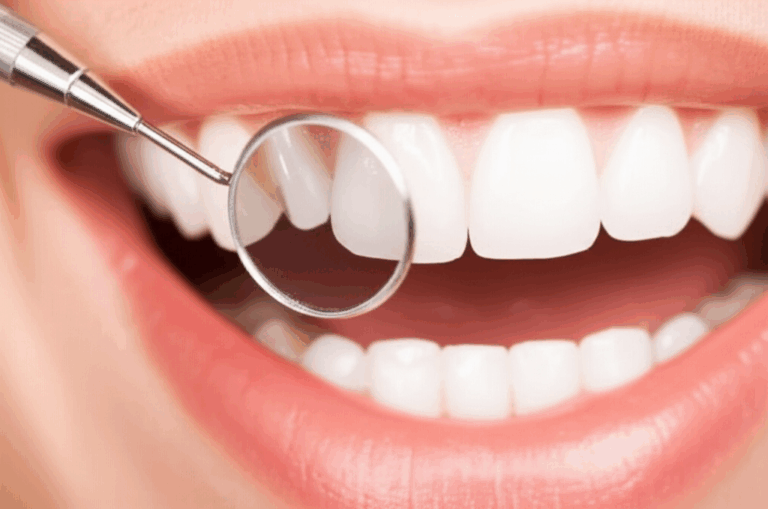
Does the Final Stage of Dental Implant Hurt? Understanding Discomfort & Pain During Crown Placement
Do you worry about pain when you finish getting a dental implant? You’re not alone. This article gives straight answers about what the final stage of a dental implant really feels like, what’s normal, what’s not, and how to keep your smile safe. Keep reading to find out how you can get past your fear and walk out of your dentist’s office feeling better than ever.
Table of Contents
What Is the Final Stage of a Dental Implant?
You’re almost done. After months of waiting, or maybe just a few visits, you’re finally near the end for your dental implant. But what does the “final stage” mean?
The final stage of a dental implant is when the dentist puts on the abutment and the crown. The abutment is a piece that connects the implant (the screw in your jaw) and your new dental crown, which is the fake tooth that looks and works like your own.
Normally, you’ll go to your dentist, and they’ll open the gum a little for the abutment or, if the gum looks good, just connect the abutment with a few careful twists. After your gums get better (sometimes just a few days), the new crown goes on top. The dentist checks your bite, makes sure it fits, and then screws or glues the crown in place. Done! You’ve got a new tooth.
Why Are People Worried About Implant Pain?
Let’s tell the truth—nobody looks forward to pain at the dentist. Just hearing “dental implant” can make people nervous. A lot of people worry that the last step will hurt the most. Why is that?
- Bad visits to the dentist in the past
- Stories from friends or online about pain after getting implants
- Not knowing how everything works
- Fear that something could go wrong, like the implant not working or hitting a nerve
I’ve heard all kinds of worries from people who come to our implant dental laboratory. But most stress comes from not knowing what’s normal or what to expect.
What Really Happens During the Final Stage?
Here’s what you can expect at your last visit for your dental implant. There are two parts: putting on the abutment and then the crown.
Abutment Placement
Your dentist will likely numb the spot with some anesthesia. If the gum is over the implant, they’ll make a little cut to see it. You might feel some pushing or shaking, but it shouldn’t hurt. After they put on the abutment (it’s like screwing a cap on), the dentist closes the gum if they need to or puts on a healing cap. The gum heals around the abutment.
Crown Placement
Once your gum feels better—often just a week or so—you come back for the crown. The crown is made to look like your other teeth. The dentist puts it on the abutment, checks your bite, and makes small changes if needed. You’ll feel a little pressure, but no bad pain. When it’s perfect, the crown is put in for good. Now you’ve got a real, usable tooth!
Is Pain Normal After Getting the Crown or Abutment?
People often ask: Will I hurt after the last crown or abutment goes in? Here’s the simple answer.
Normal Discomfort
- Mild gum soreness for a day or two is normal
- Tenderness when you chew (just at first)
- Maybe a little swelling, especially if your gum got cut
- These go away on their own in about a week
What You Shouldn’t Expect
- Bad, throbbing pain that keeps you awake
- Numbness or tingling that stays
- Bad taste or pus near your new tooth
The implant itself is in the bone and has no nerves—so it can’t really hurt. With numbing medicine, you’ll feel fine during the appointment. Mild soreness? Yes. Real pain? No.
Table: What to Expect After Final Stage
| Sensation | Normal? | How Long? |
|---|---|---|
| Mild gum soreness | Yes | 1-7 days |
| Pressure while biting | Yes | 1-5 days |
| Sharp, persistent pain | No | See dentist |
| Swelling or fever | No | See dentist |
| Crown feels loose | No | See dentist |
When Should You Worry About Pain?
So, how much pain after implant crown is too much? A bit of soreness is fine, but look out for these signs:
- Gum still swollen or hurting after a week
- Sharp pain when you chew or bite
- Jaw pressure or headache that stays
- Bleeding, pus, or bad taste in your mouth
These might mean something is wrong.
Why? Strong pain might mean infection, the crown not fitting right, or even nerve trouble (which is rare). Also, a loose or cracked crown can be painful.
Common Causes of Unusual Pain
Here are the most common reasons your implant might hurt after the last step.
1. Swelling or Infection (Peri-implantitis)
Sometimes, germs can get around the implant under the gum. You might notice:
- Ongoing pain
- Redness or the gum is puffy
- Pus or a bad taste in your mouth
- Maybe even a fever
If you notice these, talk to your dentist! Keeping your mouth clean and seeing the dentist helps stop this.
2. Bite Problems—Crown Too High
If your bite isn’t right after the crown is put in, your implant gets too much pressure. You can get:
- Jaw pain or headache
- Sore gum near the new tooth
- A “high” feeling, like the tooth is taller than the rest
Don’t wait—dentists can fix this by adjusting your bite.
3. Loose Abutment or Crown
If your abutment or crown come loose:
- You might feel it move, or get sore spots or sharp edges
- The area can get red or even infected
4. Nerve Trouble
It’s rare, but if the implant presses a nerve, usually in the lower jaw, you may feel numbness, tingling, or shooting pain. Get help right away if this happens.
How to Manage Discomfort After Dental Implant Placement
Let’s look at how to help yourself feel better after you go home.
Over-the-Counter Pain Pills
Simple painkillers like ibuprofen or acetaminophen help most people. Take them as your dentist or the box says.
Cold Pack
If you’re a little swollen, use an ice pack (or frozen veggies in a towel) on your face for 10-20 minutes. This helps with swelling and soreness.
Soft Foods and Lots of Water
Eat soft things: yogurt, eggs, mashed potatoes. No hard or sticky snacks for a bit. Drink water to help healing.
Gentle Cleaning
Keep your mouth clean, but go easy on the implant spot. Use a soft brush and rinse only if your dentist tells you it’s okay.
Tip: If you wonder about caring for crowns or implants, check our dental ceramics lab page for more advice about taking care of special dental work.
What Can You Do for Faster Healing and Less Pain?
Want your new tooth to feel good, fast? Try these:
- Do everything your dentist tells you after the visit
- Don’t smoke—it slows down healing and makes infections more likely
- Keep your mouth clean—don’t let bacteria win!
- Rest after your appointment, especially the first day
- Don’t chew hard things or use your new tooth to open stuff
You can learn more about tooth repair ways and how to keep your teeth safe at our crown and bridge lab.
When To Call Your Dentist Right Away
Big problems are rare, but if you notice any of these, call your dentist soon:
- Strong, sharp, or growing pain that won’t stop
- Numbness or tingling that stays long after the numbing wears off
- Bleeding that doesn’t quit, or pus
- Your crown or abutment feels loose or moves
- Trouble biting or chewing
You know your body best! If something just feels wrong, call your dentist.
Conclusion: Smile Forward With Confidence
Getting a dental implant is a big step toward a better, happier smile. It’s normal to worry about pain at the end. But with good facts, a dentist you trust, and good parts made by a solid lab, you can expect things to turn out well.
Most people feel only a little sore or tender after the last step—nothing you can’t handle with regular medicine or by just waiting. Bad pain is rare, and knowing what’s not normal helps keep you and your new tooth safe for many years.
I’ve seen thousands of crowns and implants made at our China dental lab, and most people say they wish they hadn’t worried so much. With tough new materials like zirconia and porcelain, and neat tools from a digital dental lab, your comfort and safety are top priorities.
Key Things To Remember
- Most people feel light soreness or aches only, not big pain, after the last part of dental implant treatment.
- The final stage is the abutment and crown—these shouldn’t hurt a lot because of numbing shots.
- Bad pain, lots of swelling, bleeding, bad taste, or no feeling are NOT normal. Go see your dentist if these show up!
- Clean your mouth, eat soft foods, and take pain pills if you need to.
- The implant won’t cause pain by itself—it can’t feel anything; pain is usually from gums or bite problems.
- Good work from smart labs and dentists, like at our digital dental lab, stops most trouble before it starts.
- If something is wrong, get your dentist’s help—protect your new tooth for years!
You’ve got this! Worry less, smile more, and trust your team—you’re on the way to a great, pain-free, bright new tooth.








